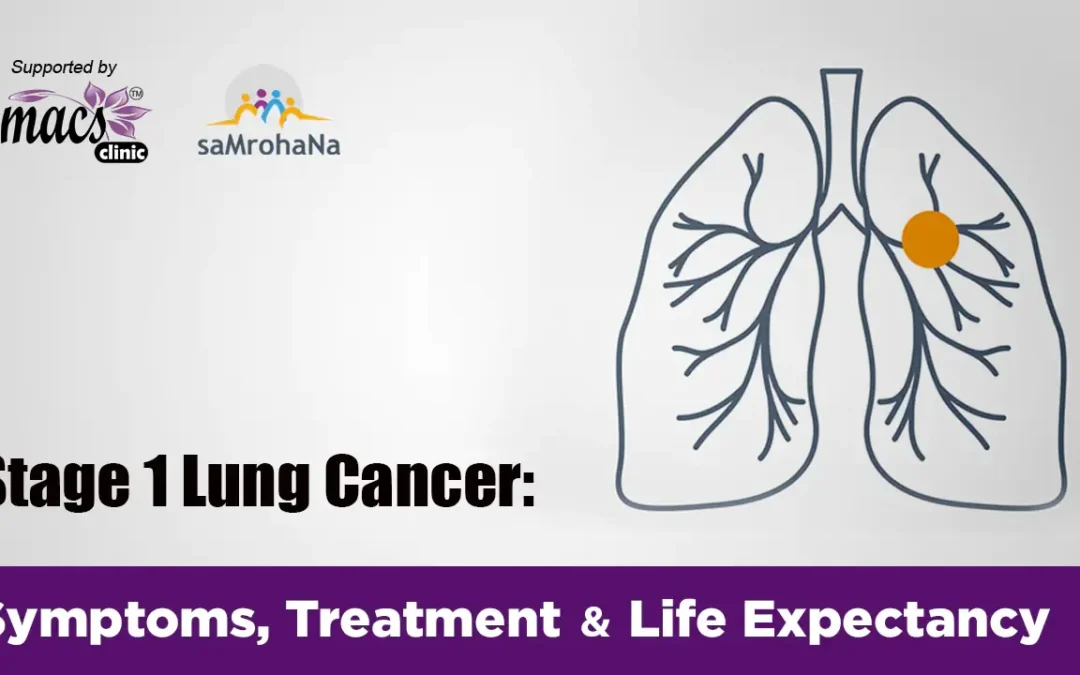“Stage 1” is used to describe the early stage of lung cancer, where the tumor is confined to the lung, is less than 3cms in size, does not involve any adjacent structures such as the diaphragm, pericardium, or chest wall, and has not spread to the lymph nodes or other parts of the page.In this stage, patients tend to respond well to treatment, and a cure can often be achieved with the expertise of leading oncologists in India.
However, most lung cancer patients do not approach doctors at this stage because the disease either remains asymptomatic or it presents minor symptoms based on the location of the tumor. For example, if the tumor is located close to the trachea, it can cause irritation which may result in a cold, blood in the sputum, chest pain, and difficulty in breathing.
Diagnosis:
Lung cancer is usually diagnosed on the basis of chest X-rays, which are used to spot small lesions, or screening CT scans. Usually, if lung cancer is detected while it is still in stage 1, the diagnosis is accidental as there are hardly any symptoms. But, screening can help in the detection of the disease before major symptoms are exhibited. It can help catch the cancer in its early stage, because of which efficient treatment can begin sooner.
Early detection of lung cancer means:
- Patients tend to have good prognosis.
- If the lesion is less than 1cm, patients have a 5-year survival rate of over 92%.
- If the lesion is in stage 1, patients have an overall survival rate of over 80%.
Treatment:
The main course of treatment adopted for stage 1 lung cancer is surgery i.e. lobectomy. The human lungs have five lobes, three on the right, and twoon the left; lobectomy refers to the removal of the lobe involved in the tumor, along with the lymph nodes. Once surgery is performed, chemotherapy and targeted therapy may be recommended by doctors, if required.
- Chemotherapy: Refers tothe use of chemicals (anti-cancer agents) to inhibit the spread of cancerous cells. These chemical agents also affect the patient’s normal cells. Chemotherapy is used as a form of palliative care to control symptoms and improve quality of life.
- Targeted therapy: Refers to is the use of drugs to target specific proteins and genes that are involved in the growth of tumor cells.These drugs are usually found to be effective only post-surgery, and they have been shown to have good results in the long term.
Challenges in the treatment of lung cancer:
- Lung cancer is an aggressive disease
- There is a high risk of recurrence

